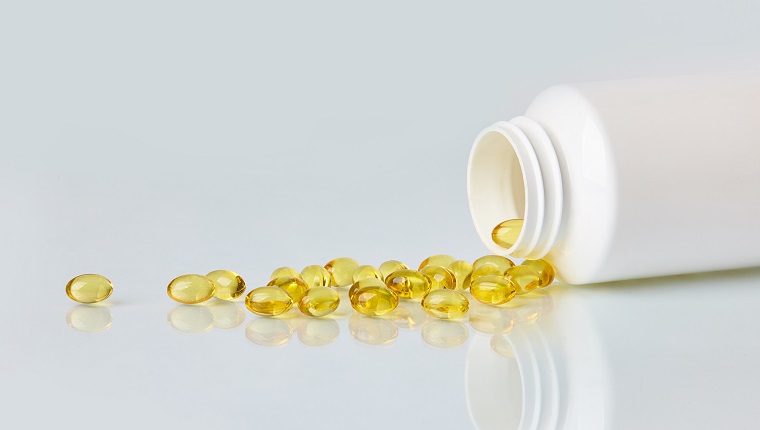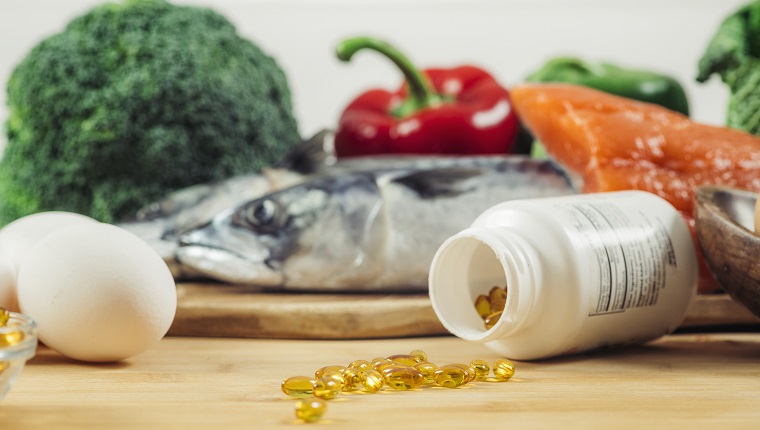Can dogs take vitamin D? You might have found yourself wondering this if you’ve started taking vitamin D supplements yourself to redress not being able to be outside with your dog as much as you’d like. If humans can take vitamin D, can dogs safely take it too?
There is no short yes or no answer as to whether dogs can take vitamin D supplements. If a veterinarian diagnoses a dog with a vitamin D deficiency, then they might suggest a canine-formulated vitamin D supplement.
However, there are perhaps better ways for your dog to receive enough vitamin D. Also, too much vitamin D can be toxic for a dog.
As always, you must ask your regular vet before adding any supplements to your dog’s diet, including vitamin D. Here’s what you need to know about vitamin D and dogs.
How Is Vitamin D Good For Dogs?
According to the American Kennel Club (AKC), vitamin D is one of seven essential vitamins that all dogs require. Often known as the sunshine vitamin, the AKC explains how vitamin D “allows your dog’s body to balance minerals like phosphorous and calcium for healthy bone growth.”
Vitamin D is essential for maintaining proper calcium levels in a dog’s body.
If your dog does not receive enough vitamin D, they risk being unable to develop as they should and might struggle to keep their bones and muscles in healthy condition.
How Can I Safely Give Vitamin D To My Dog?

Ideally, your dog will get enough vitamin D through their daily diet. Some common foods that are good sources of vitamin D include beef, liver, fish, eggs, and certain dairy products.
In general, most of a dog’s vitamin D can be absorbed into the body after eating meat.
If you suspect that your dog might be lacking in sufficient levels of vitamin D, consult with your vet before adding any supplements to their diet. Remember to never administer human vitamins and supplements to any pets unless specifically advised to do so by a vet.
If your dog has a vitamin D deficiency, the vet will carry out blood tests to ascertain the exact levels of vitamin D that the dog is receiving.
Many vets will ask about the dog’s diet and see if there is a way to adjust daily meals so that they can provide more vitamins naturally.
If tweaking a dog’s diet is still not providing enough vitamin D, vets can prescribe pet-specific supplements. As with any medicine or dietary supplements recommended by a vet, you must follow the precise directions in terms of both dosage and frequency.
Again, you should only supply the amount of vitamin D to your dog that your vet recommends. This is because giving your dog too much vitamin D can become toxic.
A dog whose calcium levels become too high can end up suffering from damage to the muscles and kidneys, seizures, and constipation. Additionally, a dog’s bones can become more likely to be broken or damaged when they suffer from vitamin D toxicity.
Commercial, dog-formulated vitamin D usually comes in the form of capsules or pills. If your dog shows an aversion to the supplements, you can crumble up any pills or puncture any capsules and mix them in with your canine’s regular meals.
Has your vet ever told you that your dog needed more vitamin D in their diet? How did you help your dog get the vitamins they needed? Tell us all about it in the comments section below!





